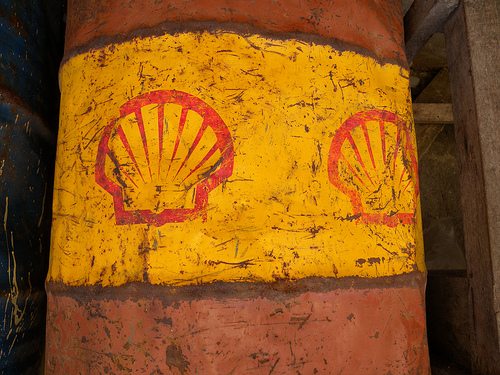

Economy
‘Deteriorating operating environment’ in Nigeria leads to Shell profit plummet
Shell’s profits in the second quarter of 2013 were 21% less than in the same period as last year, because of difficulties in Nigeria and tax issues relating to a weak Australian dollar.
The oil giant made a $4.6 billion surplus between April and June, compared to £6 billion in 2012. It said that this was because of the “combined negative impact of $0.7 billion after tax related to the impact of the weakening Australian dollar on a deferred tax liability and the impact of the deteriorating operating environment in Nigeria.”
Another reason for its decreasing profits was higher costs for operations on sites and exploration charges.
Peter Voser, Shell CEO said, “Higher costs, exploration charges, adverse currency exchange rate effects and challenges in Nigeria have hit our bottom line. These results were undermined by a number of factors – but they were clearly disappointing for Shell.”
Voser said that oil theft and sabotages to gas supplies in Nigeria were causing environmental damage and could cost the Nigerian government $12 billion in annual lost revenues.
“We will play our part, but these are problems Shell cannot solve alone”, Voser added.
Shell’s presence in Nigeria dates back to 1937, but the company only started to export oil out of the country in 1958. Since then, a number of controversies about human rights violations and environmental damage have been brought to light.
The Ogoni people, who live close to the Niger Delta, have long protested against Shell’s profits and the potential damage caused by oil spills. Rebels have often been accused of being responsible for sabotages but both Amnesty International and Friends of the Earth contested such claims.
Court papers from 2011 say that Shell has been paying the military since the early-90s to suppress peaceful protests organised by locals against oil pollution.
Another two oil giants, BP and ExxonMobil, also reported lower earnings for 2013 compared to last year.
Further reading:
Ben van Beurden to replace Peter Voser as Shell chief executive
Russia and Shell’s dangerous liaison threatens the Arctic region
Oil companies to blame for 55 North Sea leaks, says Greenpeace
Oil companies are putting investors’ money at risk
Waitrose puts Shell partnership on hold after Greenpeace campaign


 Environment12 months ago
Environment12 months agoAre Polymer Banknotes: an Eco-Friendly Trend or a Groundswell?

 Features11 months ago
Features11 months agoEco-Friendly Cryptocurrencies: Sustainable Investment Choices

 Features12 months ago
Features12 months agoEco-Friendly Crypto Traders Must Find the Right Exchange

 Energy11 months ago
Energy11 months agoThe Growing Role of Solar Panels in Ireland’s Energy Future




























